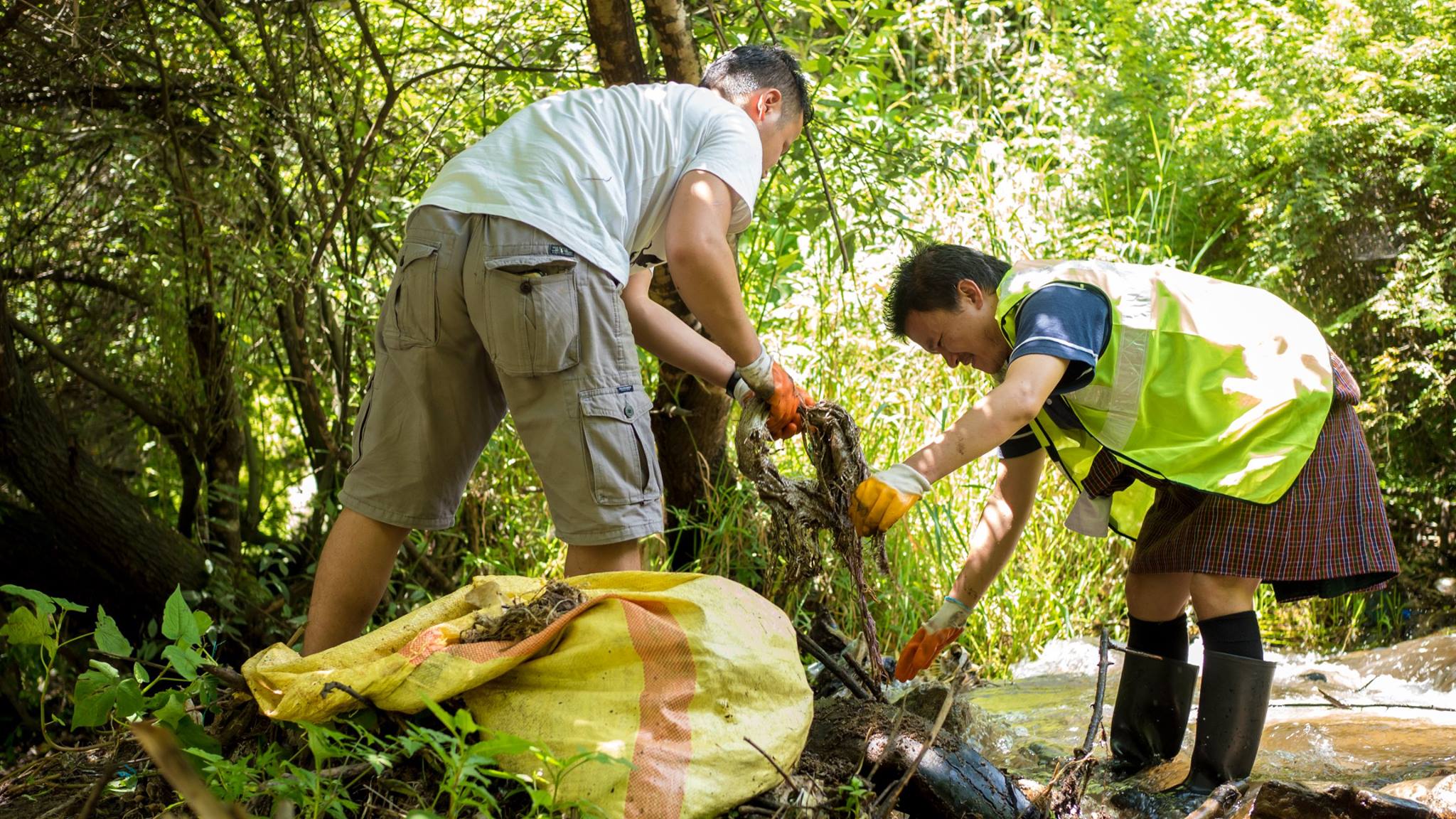Under the initiative, organizations were made responsible for certain stretch of the stream and subsequently, regular monitoring and follow-up cleanings were planned. On the launching day, nearly 100 people from different organisations including Royal Monetary Authority, World Wide Fund for Nature (WFF) Bhutan, National Land Commission, Ministry of Health and RSPN attended the half day long cleaning. Two months later in May RSPN led the follow up cleaning of assigned half a kilometre with the participation of volunteers from five organisations. Given the amount of waste accumulated within a short period since the stream adoption, it is imperative that similar cleanings should be conducted at least once in every month instead of the abiding by the planned quarterly cleanings. RSPN/BhWP as the coordinating agency confirmed their regular participation for the monthly clean-up by providing volunteers, procuring cleaning equipment and refreshments and carrying out advocacy around the events.
The initiative has become a regular cleaning campaign along the stream and RSPN/BhWP has marked last Thursday of every month as a cleaning day. RSPN has also made a comprehensive assessment of water quality and pollutant points and presented it to the National Environment Commission for further action.
In continuation with the above programme, adoption and cleaning of Chubachu stream, Bhutan Power Cooperation (BPC) Division coordinated a similar cleaning campaign on 18 November along the assigned stretch of the stream with about 25 volunteers. The team carried out a rigorous cleaning and collected about 23 bags of waste majority of which were old rugs and cloths, tyres, baby dippers, plastic and plastic bottles. The collected waste was discarded properly by the team.
As the waste collected during the clean-up were mostly recyclable wastes, and as maximum waste accumulation were along the settlement areas it is recommended to carry out advocacy and awareness raising programmes for the communities living along the Chubachu stream on waste management and enforce the existing laws. Stringent monitoring by relevant authorities such as Thimphu Thromde and National Environment Commission should be enforced and directing sewage to the stream should be banned immediately.
